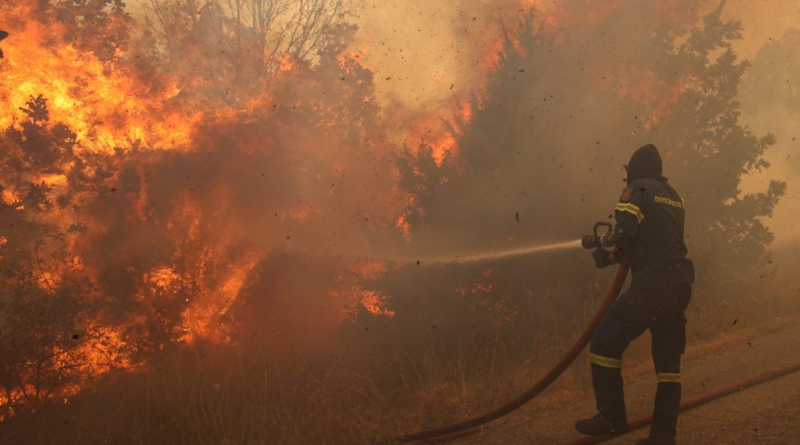Greece wants to pour $2.3 billion into fighting climate change and natural disasters
Greece is investing €2.1 billion ($2.27 billion) to protect the nation from natural disasters caused by climate change as wildfires are already breaking out ahead of fire season, which normally starts in May.
The Aegis program is the first of its kind in Greece. According to Panagiotis Stampoulidis, the executive director of the Hellenic Republic Asset Development Fund, which will oversee procurement for it, it will also be Greece’s biggest-ever procurement program. The initiative will provide new and upgraded equipment to the Ministry of Civil Protection, including amphibious firefighting aircrafts, drones for aerial monitoring, fire detection and extinguishing systems, fire control centers and more than 1,000 firefighting vehicles.
Key procurement projects will be handled by HRADF’s Project Preparation Facility, or PPF, which has a €592 million budget and to date has issued 16 tenders. In total, HRADF is managing a portfolio of projects for Aegis that amount to about €970 million, Stampoulidis said in an interview in Athens.
Climate change-related fires have been a serious problem for Greece in recent years. In 2023, wildfires scorched almost 675 square miles of forest, or 1.3% of the country’s total land area. That’s up from an average of just under 168 square miles a year between 2006 and 2022, according to the European Union’s European Forest Fire Information System.
Last August, Prime Minister Kyriakos Mitsotakis pledged to upgrade the country’s technological toolkit for preventing wildfires after Greece suffered the most fire-related destruction in 16 years.
Around 19,000 people, including thousands of tourists, were evacuated the month prior from parts of the island of Rhodes after wildfires broke out amid a heat wave that set temperature records across southern Europe.
Aegis’s aim is to protect human life, property, forests and the country’s natural beauty and ecology amid mounting climate threats, Climate Change and Civil Protection Minister Vasilis Kikilias said last week. Funding for the program comes from the EU’s Recovery and Resilience Facility, the National Strategic Reference Framework and the European Investment Bank, he said.
HRADF also has a budget of €198 million this year for the Anti-Nero III program, which supports wildfire prevention measures such as cleaning forests, upgrading and maintaining forest access roads and creating and maintaining anti-fire zones.
Anti-Nero III, which is already underway for 2024, covers the cleaning of more than 14,300 acres of forest and provides for the creation and maintenance of almost 20,000 acres of fire prevention zones.
Meanwhile, the outlook for this year’s wildfire season, which historically runs from May to October, is grim. Along with its southern European neighbors, Greece has been affected by ongoing drought conditions, according to the European Union’s Copernicus service, which often lead to more fires.
In the second 10-day period of March, our #EDO CDI showed that Southern Europe, particularly the #Mediterranean region, continued to be affected by #drought conditions
Alert conditions persisted in southern #Italy
and #Spain
More at
https://t.co/jbAFISFCQT pic.twitter.com/XxnzujTvKy
— Copernicus EMS (@CopernicusEMS) March 28, 2024
Over a 12 hour-period on April 6, 71 bush and forest fires broke out across the country, according to the Climate Change and Civil Protection Ministry, which elevated the national fire alert warning to the second-highest level. Villages on the island of Crete were among those evacuated after a fire spread in a forested part of the Lasithi region.
Crews had been removing natural and man-made debris in forests across the country over the past few weeks to prevent such a disaster, Stampoulidis said.
“Additional crews will start operating in more forests very soon and their work will be completed by July. Their presence in forest areas is a preventive measure in itself. In 2022 and 2023, in areas where crews operated, no fires broke out,” he said.






